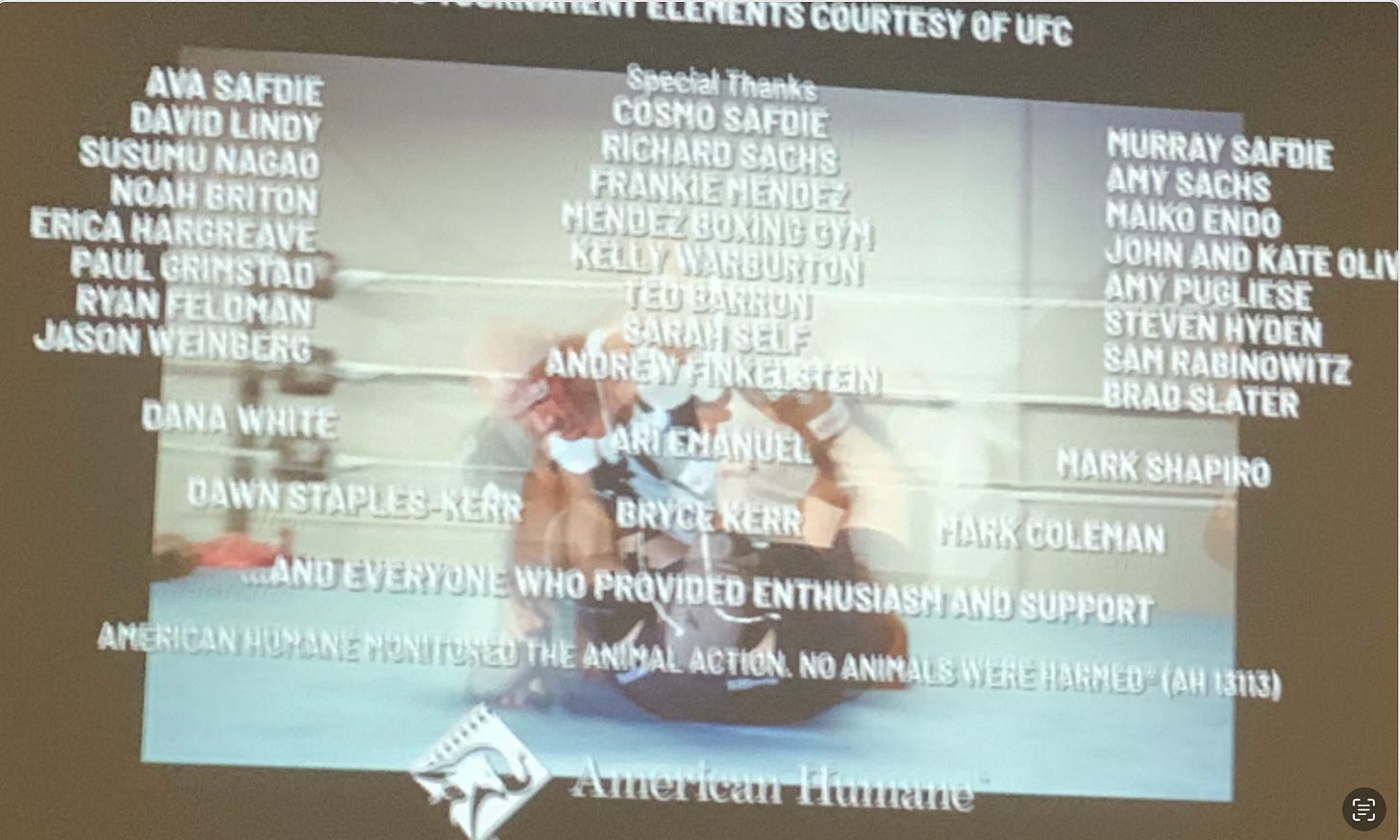The Last Taylor Swift Thinkpiece
Plus: New Music By Jay Som and An Interview With Wednesday/MJ Lenderman Producer Alex Farrar
Taylor Swift put out a new album last week. I’m sure you heard about it. The lyrics are bad and the music is competently produced. I’m sure you heard about that, too. Critics don’t seem to like it very much, and there’s blood in the water for dangerous lunatics, haters and punk trash eager to (finally) take some shots. But that ends now. This is the last Taylor Swift thinkpiece. No more Taylor Swift thinkpieces are allowed after this. You’re welcome.
I’m not really all that interested in talking about the record, though not for the reason you might think. It’s customary for a person in my demographic to simply say “it’s not for me,” and move on. It’s called “staying in your lane,” and it’s always a safe bet. But it just so happens that my demographic — bearded male music critics in their 40s — are among her most vocal supporters at this point. So, apparently, it actually is very much for me. And, to be honest, I like writing about her. I’ve done it for a long time. Reviewed several albums, penned a couple of think-y career assessments, even included an essay about her (and Kanye) in my first book. I am fascinated by Taylor Swift as a phenomenon, as a cultural bellwether, and (above all) as a dominant American corporation.
But as a singer, songwriter, or musician? Not so much. I don’t find her artistic impulses AT ALL compelling, especially in the last several years. Let’s compare her to Joni Mitchell, to whom she is constantly likened, for dubious reasons. Joni, like practically any musical great I could name, is a transcendent egomaniac so confident in her unimpeachable genius that she once donned blackface on an album cover. Which, to be clear, was not something most people thought was cool or acceptable, even back in 1977. But Joni didn’t care. Because Joni is in her own solar system. She does what she wants. She’s free, even when she’s wrong. And that’s why people love her.
Taylor Swift, on the other hand, is as practical and sober as your garden variety Fortune 500 CEO (which, I think, she technically is). Like any good business person, she panders to her audience endlessly. Which means she’s never made a “house money” record, even though she has more money than God now. The idea of a self-indulgent artistic gesture is anathema to her. And I find that, frankly, kind of sad, given her circumstances. A great artist, to me, is a chef who insists on serving you what he or she wants to cook, the diner’s expectations be damned. Taylor Swift meanwhile is the parent who feeds her kids comfy butter and noodles every night because that’s what they like and they won’t eat anything else. (Running it back one more time with Max Martin and Shellback is the “comfy butter and noodles” of pop music.)
But as I was saying: I don’t want to talk about the album. Talking about the album stopped being fun this week when people started quoting Dostoevsky while insisting that greed has “destroyed” her ability to make good art. An argument I find curious and downright confusing, particularly coming from a self-identifying fan. Is the implication that Taylor Swift just started being greedy last week, with this record you don’t like? Isn’t this the same woman who just staged, by far, the most profitable tour in human history? Did she become a billionaire against her will? Am I to believe that she donated all that cash to the Salvation Army?
What do you think compels a person to move, as a teenager, from Pennsylvania to Nashville, and then to New York, and then to the world’s arenas and stadiums, and then to (I’m speculating) the finest 70,000-square foot mansion in the metro Kansas City area made out of gold, diamonds, and the bones of countless endangered species? Do you really believe that something like art — which 99 percent of the time makes zero money — motivates that kind of trajectory? That you can become as rich and popular as Taylor Swift as a byproduct and not as a direct result of your preordained actions? I’m sorry but I have to level with you: Gordon Gekko wrote all those songs that you love, too. That’s just the truth, and it always has been.
I’ve been workshopping this idea for a while now so bear with me: Taylor Swift is the new Disney. Like Disney, she caters to a wide cross section of kids and adults who are interested in kid-friendly entertainment. Like Disney, she’s propagated the popular American fantasy of a blonde white woman living a fairy-tale life. Like Disney, she’s occasionally embroiled in culture wars but really her main concern is maximizing market share, quarter after quarter, unceasingly, forever and ever. And, like Disney, she’s increased that market share in recent years by remaking her older, more popular work — you liked this cartoon we made years ago, how about the new live-action “Taylor’s Version”? Disney is the greatest corporation ever at repackaging its audience’s past and reselling it to them. Or, at least, they once were. Now it’s Taylor Swift.
You can call that greed, or you can call it servicing the public’s unending greed for Taylor Swift content that feeds their nostalgia. The friendship bracelets, the constant stream of self-referential Easter eggs, the habit of still writing songs about high school, the frozen-in-time nature of the re-recordings — millions upon millions of people have craved this shit, and they have rewarded it with their dollars. So, now they’re going to drag her for putting out multiple special editions of the album with a handful of acoustic tracks and demos? Or that glorified “making of the music video” DVD extra that she strong-armed into your local IMAX theater? The public has been at this trough now for almost two decades. Filling that trough has been Taylor Swift’s project for most of her life. Don’t you understand: She won’t stop because her fans won’t let her stop, no matter their complaints.
Thinking about Taylor Swift as a corporation rather than as an artist is the only way to rationalize her choice to keep doing this. Because from an artistic point of view, I just don’t get it. She’s talked in the past about studying Behind The Music, and noting how and when artists go into decline, which has enabled her to avoid the same pitfalls. She is, sincerely, probably the smartest and canniest pop star from a business perspective, by a mile, ever. But all this time she’s been so afraid of failure that she forgot to also be fearful of success. And that’s become her central dilemma.
Failure is devastating, but success is tedious. And I think, deep down, she knows this. There’s a video that went viral this week from (I’m guessing) the mid-2010s, where she’s joking about the series of mini-backlashes she weathered after 1989 affirmed her “biggest pop star in the world” status. People are mocking her now for her awkwardness, the way she expects her laugh lines to conjure actual laughs (they don’t). But when I watched it I just felt sorry for her. The public and the media are super annoying to deal with, I’m sure. Nobody is ever fully satisfied, regardless of how hard you try to satisfy them. Being a pop star is a lot of fun until it’s not. Then it’s just a job. And not a very fulfilling one, at least not emotionally or creatively. Which is why most of the people in Taylor Swift’s position throughout history eventually chose to stop chasing the zeitgeist. The Beatles quit touring, and when that didn’t work they broke up. Bob Dylan crashed his motorcycle and became a recluse for almost a decade. Elvis numbed himself with buckets of drugs and died in his early 40s. Prince made Around The World In A Day and Parade, as well as lots of other weird albums he never put out. Bruce Springsteen got divorced and remarried, and then left New Jersey and wrote “57 Channels (And Nothin’ On).” Garth Brooks became Chris Gaines. Madonna married the director of Snatch. Shania Twain moved to Switzerland. So did Tina Turner. Britney Spears shaved her head. I could go on but you get the point.
The only person who seems like Taylor Swift at this juncture is Michael Jackson. His life’s obsession was topping Thriller, and it was one of the things that destroyed him. (Not the main thing, I concede, but it was in the top 10.) And I don’t mean “destroyed” in the thinkpiece sense, I mean literally destroyed. I don’t want that for Taylor Swift. I want her to live in her own solar system and be free of the world’s addiction to “bops” or “bangers” or whatever. Her audience’s appetite will never be satiated. So, why not stop feeding it?
FURTHER READING
Over at Uproxx, I interviewed Alex Farrar, an Asheville, North Carolina record producer and studio engineer who has worked on some of my favorite indie albums of the 2020s. An excerpt:
In 2025 alone, Farrar has produced or mixed Wednesday’s Bleeds, Hotline TNT’s Raspberry Moon, and Fust’s Big Ugly, all albums I expect to appear on my year-end list. In 2024, he manned the boards for MJ Lenderman’s Manning Fireworks after previously producing that album’s beloved 2022 predecessor, Boat Songs. All told, Farrar has contributed to acclaimed releases by Snail Mail, Indigo De Souza, Wild Pink, Hurray For The Riff Raff, and Plains, among others.
If you know those records, you can probably pinpoint some common sonic touchstones — Farrar’s specialty is country-ish rock with muscular guitar tones that can pivot in the direction of ’90s-style alterntive. That sound has become foundational for indie acts this decade, and I was curious to talk to one of the behind-the-scenes architects. So, Farrar guided me through some of his highest profile collaborations.
Read more here.
RECOMMENDATION CORNER
I first wrote about Melina Duterte — the Oakland native who records and performs as Jay Som — back in 2017, when she first emerged as a member of the so-called “Bandcamp Generation” of millennials who got popular online and then formed bands to tour. At the time I described her as “a multi-hyphenate wunderkind — a singer, songwriter, and producer of sneakily sophisticated indie-pop songs.” And I still believe that, though it’s been a minute since she’s put out a record. In the meantime she’s produced other artists (like Chris Farren) and toured as part of Boygenius. Thankfully, she’s back this week with Belong, her first album in six years, and it finds her not missing a beat when it comes to making instantly enjoyable and replayable indie-pop tunes.
ONE MORE THING
I got to know Benny Safdie a tiny bit when he was a guest on my Bob Dylan podcast, and then he kindly agreed to write a blurb for my book, There Was Nothing You Could Do. And now he has paid me the additional kindness by thanking me in the credits of his new movie, The Smashing Machine. There’s a specific needle drop in the film that he says was inspired by my book, which I won’t give away because you should see this movie and find out for yourself! It’s really good!





Thinking about you, thinking about Taylor Swift. First, I am a 66-year-old male who primarily listens to Americana, jam bands, indie rock, and jazz. However, I do have a soft spot for the occasional pop star, such as Swift, Gaga, and Madonna. I have a theory that musicians are either artists (like Dylan) or entertainers (like Madonna), and very few are both (like Prince). Swift is an entertainer, by my categorization. I think I agree with everything you said here. Swift's original innovation was to take an adult genre, country, and give it a teenage perspective. She then leveraged her success to become a pop star. She is an entertainer without a drop of artist in her. As much as I like Showgirl (it has been on near-constant rotation since its release), I also recognize that it is unnecessary, just like every Stones album since Some Girls. But I still appreciate its existence (like I appreciated Voodoo Lounge when it came out), because as a fan, I can only listen to 1989 so many times. As long as she can freshen up the earworms (Showgirl), I am all in.
I think there's a parallel between Taylor Swift and Rivers Cuomo. Both are iconic to pretty much a whole generation, and both made a conscious choice to pursue popularity, and arguably both had a kind of artistic arrested development. I really don't know how far the analogy works beyond that, to be honest, but I think there's *something* there.
(Obviously, Swift is on another stratosphere compared to Rivers; compared to her, he's like a minor leaguer and she's like Aaron Judge. By the metric of success, which is clearly a measure that is extraordinarily important to both of them, they are not in the same universe.)